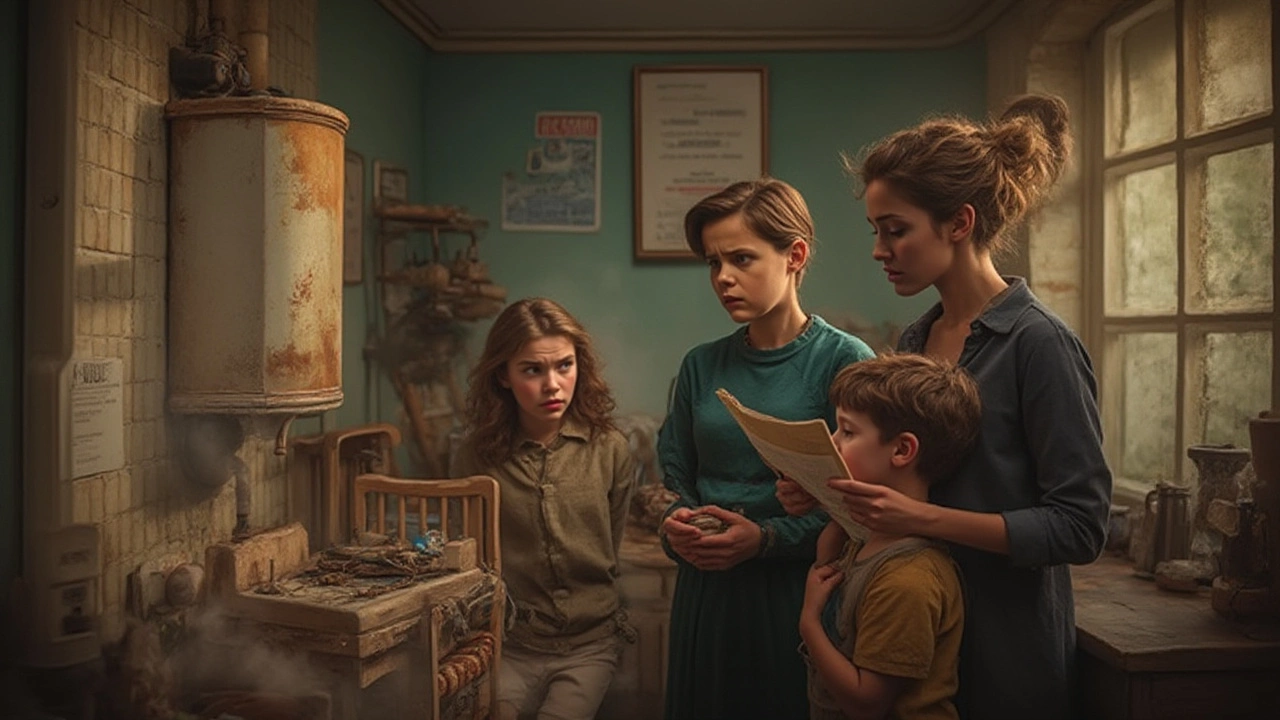Wondering if your 40 year old boiler is safe? Discover the real risks, surprising facts, and practical safety tips to protect your home and family.
Living with a 40‑Year‑Old Boiler: When to Keep It and When to Replace
If your boiler has been chugging along for four decades, you’re probably proud of its durability. But age brings wear, and a 40‑year‑old unit can start costing you more in repairs and energy bills than a brand‑new model. In this guide we’ll break down the big warning signs, what a typical boiler lifespan looks like, and how to decide if a replacement is the smarter move.
How Long Do Boilers Really Last?
Most modern gas boilers are built to last 10‑15 years. Older cast‑iron models can stretch to 20‑25 years if they’re well‑maintained. Anything beyond 30 years is considered vintage, and reaching 40 years is rare. The metal fatigues, seals dry out, and corrosion eats away at internal parts. Even if the boiler still fires up, efficiency drops dramatically – you may be paying extra for every hot shower.
Red Flags That Your Old Boiler Needs Attention
Frequent breakdowns. If you’ve called a repair person three or more times in the past year, the cost of fixes is adding up fast.
Rising energy bills. An aging heat exchanger can’t transfer heat as well, so the boiler works harder and your meter spikes.
Strange noises. Rattling, knocking, or whistling sounds mean metal is expanding, contracting, or there’s air in the system.
Leaks or rust. Any water pooling around the boiler, or orange‑brown sludge inside the pressure gauge, signals corrosion.
Failed safety checks. If a certified engineer can’t give you a clean bill of health, it’s a legal and safety risk – especially with gas appliances.
When you spot one of these signs, it’s time to get a professional opinion. A qualified engineer can run a boiler efficiency test (the “combustion analysis”) and tell you how many percent of fuel is actually turning into heat. Anything under 80 % on a unit this old is a clear sign to consider replacement.
Cost of Keeping an Old Boiler vs. Buying a New One
Repair bills for a vintage boiler can range from £150 for a simple thermostat swap to £800 for a new heat exchanger. Multiply that by a few incidents, and you’re looking at near‑new‑boiler prices. A modern condensing boiler typically costs £1,500‑£2,500 installed, but it can cut fuel use by up to 30 %. Over a 10‑year period, the savings often offset the upfront cost.
Don’t forget the government’s Boiler Upgrade Scheme – many homeowners qualify for a grant that covers a large chunk of the installation expense. Check your local council or the official website to see if you’re eligible.
Preparing for a Boiler Replacement
Before you book an installer, do a quick audit:
- Note the make, model, and serial number of your current boiler.
- Measure the size of your property and count radiators – this helps the engineer size the new unit correctly.
- Clear the area around the boiler for easy access (no boxes, no pets).
- Gather recent energy bills; they’ll be useful when comparing old vs. new efficiency.
When the installer arrives, they’ll remove the old unit, safely dispose of it (lots of recyclers take cast‑iron boilers), and hook up the new one. The whole job usually takes a full day, and you’ll get a test run to make sure everything’s humming nicely before they leave.
Final Takeaway
A 40‑year‑old boiler is a testament to solid engineering, but age catches up. If you’re dealing with leaks, noises, or sky‑high bills, the smartest move is to get a professional assessment and plan for a replacement. The right modern boiler will warm your home more efficiently, lower your energy costs, and give you peace of mind for the next decade.
Got more questions about your aging heating system? Drop a comment or give us a call – we’ll help you decide the best path forward.

